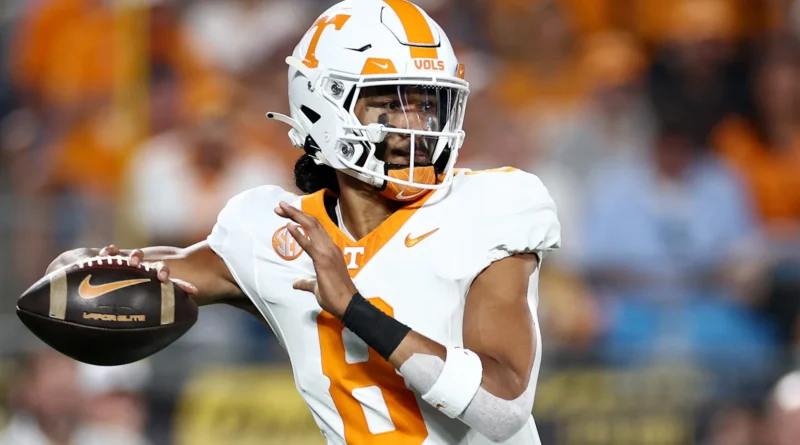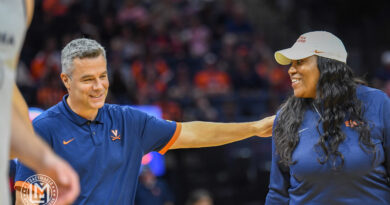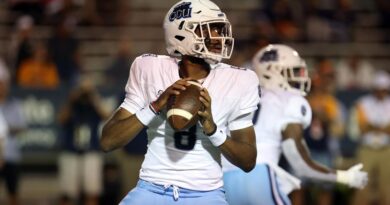Not Just Nico: College Football’s Shiny Surface Is Cracking (4-16-25)
By: Joey Raymond
Headline Photo Courtesy: Transfer Portal
By now, you’ve probably seen the headlines. Nico Iamaleava—the five-star quarterback and golden child of Tennessee’s future—might be walking away. Reports point to NIL disputes, broken promises, and a fractured relationship behind the scenes. Fans are angry, confused, and maybe even a little numb.
Sure, the drama in Knoxville is loud. But here’s the thing: this was always coming.
Just hours before the annual Orange and White spring game, news broke that Iamaleava was expected to enter the transfer portal, citing disagreements over his NIL deal. According to ESPN, he skipped Friday’s practice and team meetings, prompting head coach Josh Heupel to inform the team of the situation Saturday morning.
Iamaleava reportedly contacted offensive coordinator Joey Halzle late Friday night, stating his intent to transfer once the portal opens on April 16. Sources say Heupel and the staff tried to reach him throughout the day—with no success. The sticking point? Money. Nico allegedly wanted a raise to $4 million annually—something Tennessee wasn’t willing to offer. And while his numbers last season were solid—63.8% completion rate, 19 touchdowns, and 5 interceptions—he wasn’t exactly lighting up the stat sheet. Adding fuel to the fire, reports indicate Nico and others threatened to sit out the College Football Playoff without additional pay. The logic? More games should mean more compensation.
Now the looming question in Knoxville is simple: was Nico worth it?
Based on how this played out, it seems Heupel didn’t think so. “Friday morning when he’s a no-show, we’re moving on,” he said after the spring game. That also speaks volumes about Nico’s image as a team player—he appeared to put money above the team.
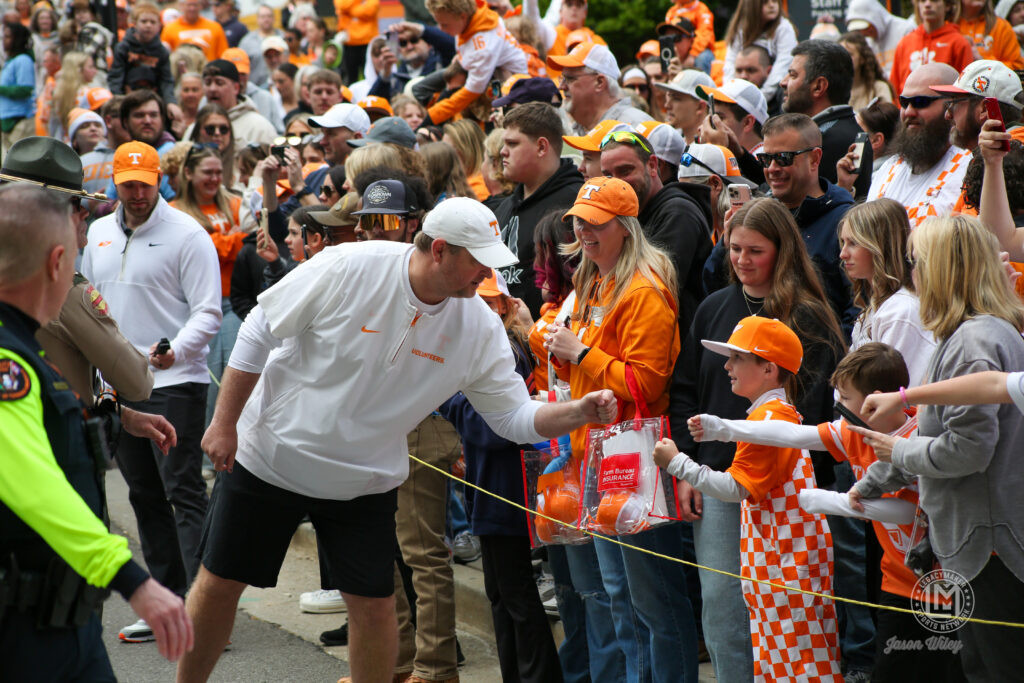
Still, Heupel offered a diplomatic farewell:
“I want to thank him for everything he’s done since he got here—as a recruit, as a player, and how he competed inside the building. We’re moving forward as a program without him. There’s no one that’s bigger than the Power T, and that includes me.”
But let’s be real: Nico isn’t the problem. He’s just the face of one.
This Is What Happens When There Are No Rules
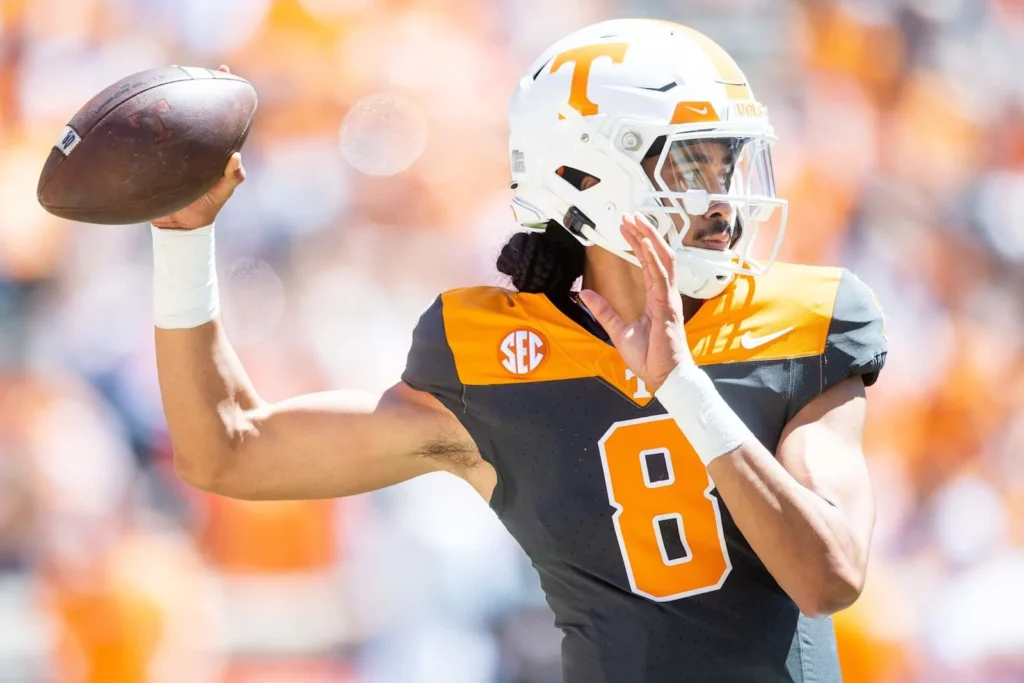
This isn’t just about one quarterback or one school. It’s about a system that’s been spiraling for years. College football, as we know it, is unraveling under the weight of its contradictions. For years, we fought for players to get paid—and rightfully so. But instead of building a thoughtful, sustainable model, we got chaos. And now, we’re watching the sport eat itself alive.
College football right now is the stock market without the SEC—the other SEC. It’s the Wild West. A full-blown free agency cycle every six months.
NIL deals are being tossed around with no regulation, no accountability, and no consistency. Schools technically can’t pay players directly in most states—but collectives, boosters, and agents absolutely can. Behind every commitment? A handshake deal. Behind every transfer? A silent bidding war. Behind every broken promise? A kid left holding the bag. And that’s the worst part—we’re talking about kids. Teenagers are being handed life-changing money with no structure, no mentorship, and expectations that would crush most adults. When things go sideways, it’s easy to point fingers at the players.
“They’re soft.” “They only care about money.”
But ask yourself—how many of us would turn down a better offer? A bigger opportunity? A fresh start, if the system allowed it?
They didn’t create this mess. They’re just trying to survive it.
Meanwhile, coaches are re-recruiting their own rosters every offseason. Fans are asked to stay loyal while teams turnover faster than Airbnb bookings. And programs—especially those outside the blue blood bubble—are struggling to keep up in a landscape that feels more like Wall Street than Saturday afternoons. And you know what? I don’t blame the players for chasing the money. We’re talking about life-altering dollars. And it’s not like coaches haven’t been doing the same for decades. Loyalty has always been a one-way street in college football.
Where Are We Headed?
This sport used to be built on rivalries, long-term development, and storylines that unfolded over the years. Now? It’s one-year rentals and “hope-you-don’t-get-burned” contracts. The transfer portal isn’t a doorway anymore—it’s a revolving door.NIL was meant to reward players. But it’s quickly become the driving force behind every major decision.
And yeah—change was necessary. Players absolutely deserved a share of the pie. Schools were making billions off their backs. But power without structure? That’s chaos. And chaos is where we’re living.
Nico Iamaleava is just the latest example. The face of the moment. But where can he go now without being booed? Where can he start fresh without being labeled a diva or a sellout?
That narrative is going to follow him all season, no matter where he lands.
But this isn’t just about Nico. It’s about the sport. It’s about a system with no guardrails. And the urgent need for someone—anyone—to finally say: enough is enough.
So What Can We Do About It?
Here’s where it gets complicated. Everyone sees the problem, but no one agrees on a solution. The NCAA has lost control. Conferences are too busy chasing TV deals to govern anything. Schools are trying to win a game with no rulebook.
But if we want to save college football—not just the brand, but the soul—we have to create structure.
Not to go backward or take power from the players, but to build something fair, stable, and transparent.
Here’s what that could look like:
- Standardized NIL contracts regulated at a national level. No more backroom deals or loopholes. Let’s treat this like the pro leagues and create real, enforceable agreements.
- A players’ association or union. Athletes need representation. They deserve a voice in shaping the system that affects their careers.
- Structured transfer windows. Not to trap players, but to bring order to the chaos—just like free agency windows in the pros.
- Oversight for collectives and boosters. Right now, they’re operating with zero accountability. That needs to change.
- Actual leadership. College football needs a governing body with teeth—one that can enforce rules and protect the future of the game.
If we don’t fix this, we risk losing what made college football special in the first place.
Nico Iamaleava won’t be the last headline like this. But maybe his situation will be the one that finally wakes everyone up.
We don’t need to tear everything down. College football still has incredible bones. It creates identity, builds communities, and delivers generational moments.
But if we want to protect it—we have to fix it.
And yeah—I still believe we can.


